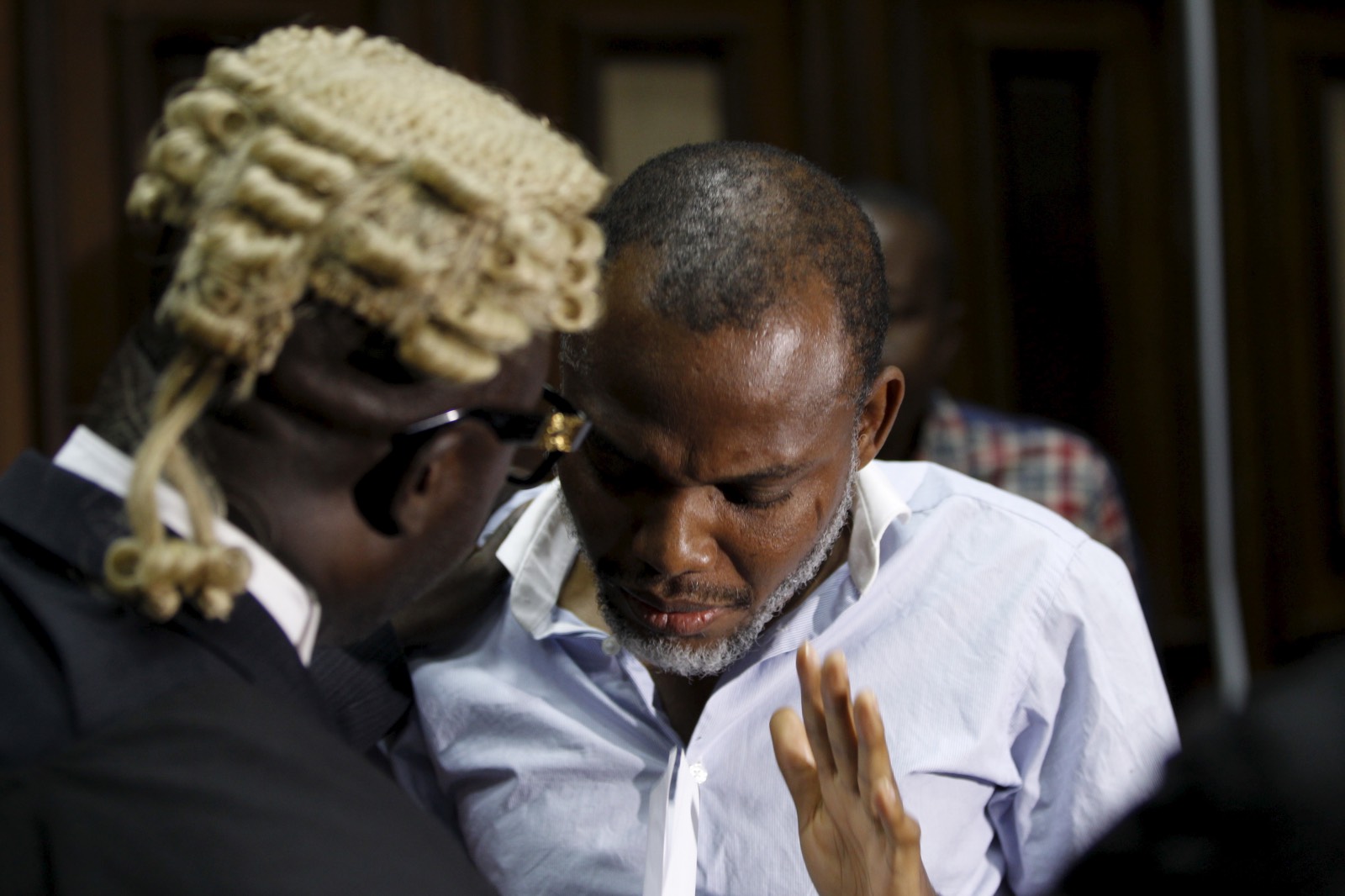Part of the the purpose or effect of the Nigerian government’s State terrorism against IPOB and Mr Kanu was to intimidate all witnesses who might testify in favor of Mr. Kanu at trial. You might also add that this situation has the effect of complicating the ability of the Court to ensure a fair trial for Mr. Kanu as guaranteed under Section 36 (4) of the Constitution of the Federal Republic of Nigeria. The government’s factually-deficient prohibition of IPOB as a terrorist organization was also calculated to inflame popular opinion against Mr. Kanu.
The fair trial guarantee enacted by the the Nigerian Constitution is a direct recast of the Fifth Amendment to the United States Constitution which protects defendants from deprivation of life, liberty and property “without due process of law.” In the US, if the court finds that the government has engaged in conduct that “shocks the conscience,” the court may utilize the “outrageous government conduct” rule and dismiss criminal charges to avoid a Fifth Amendment due process violation. See Rochin v. California, 342 U.S. 165, 172, 173 (1952); United States v. Boone, 437 F.3d 829, 841 (8th Cir. 2006); United States v. Russell, 411 U.S. 423, 431-32 (1973) (stating that a court may dismiss an indictment on due process grounds when “the conduct of law enforcement agents is so outrageous that due process principles would absolutely bar the government from invoking judicial processes to obtain a conviction”).
See also United States v. Searcy, 233 F.3d 1096, 1101 n.3 (8th Cir. 2000) (“The claim of outrageous government conduct rests on the Due Process Clause of the Fifth Amendment.”). Dismissal under the outrageous government conduct doctrine is appropriate “if the conduct falls within the narrow band of the most intolerable government conduct.” Boone, 437 F.3d at 841. “Government conduct which is so outrageous and shocking that it exceeds the bounds of fundamental fairness, may violate the Due Process clause and bar a subsequent prosecution.” United States v. Hunt, 171 F.3d 1192, 1195 (8th Cir. 1999). See also United States v. Russo & Ellsberg, Crim. No. 9373 (WNB) (C.D. Cal. dismissed because of government misconduct, including illegal wiretaps on the defense team and burglary of the office of Defendant Ellsberg’s psychiatrist).
In Kanu’s case, the misconduct of the government of Nigeria is far more egregious than in the cited cases dismissed under the due process clause of the United States Constitution. The hallmarks are self-evident – the attempted assassination of Kanu which forced him underground and unable to participate in his own defense; killing, injuring, or intimidating exculpatory witnesses and simultaneously prohibiting IPOB as a terrorist organization despite its unstained record of peaceful protests and international profile as a lawful body.
Accordingly, the Court must find cause to dismiss all charges against Mr. Kanu because the government’s misconduct shocks the conscience of the court, the Constitution and the society; and is so outrageous that fair trial principles should absolutely bar the government from invoking judicial processes to obtain a conviction.
Additionally, the totality of Nigerian government’s misconducts against Mr Kanu has created what is known in the US as a State ‘mob domination’ of trial. Mob domination of a trial that intimidates or frightens witnesses or fact-finders by a constructive threat of retribution for assisting the defendant violates fundamental fairness and due process of law. Franks v. Magnum, 237 U.S. 309, 335 (1915); Moore v. Dempsey, 261 U.S. 86, 90-91 (1923) – “if a trial is dominated by a mob so that there is an actual interference with the course of justice, there is a departure from due process of law”.
As noted above, the Nigerian Army’s extra-judicial attacks on Mr. Kanu’s home intending to assassinate him, murdering a score of IPOB members, injuring others, and the fact-challenged condemnation of IPOB as a terrorist organization have created an atmosphere of mob domination that precludes any hope of a fair trial. This atmosphere has predetermine Kanu’s conviction
And there’s more: A venerable principle of law since time is that no person should profit from his own wrongdoing. In Mr. Kanu’s case, the government of Nigeria is responsible for his underground status by dispatching the Nigerian Army to attack him and IPOB members in his home. Mr. Kanu’s underground status is legally justified by the natural right of self-preservation. Therefore, the only fair way is for the court to prevent the Nigerian government from profiting from a situation it deliberately created.
The opinions expressed in this article are solely those of the author.







